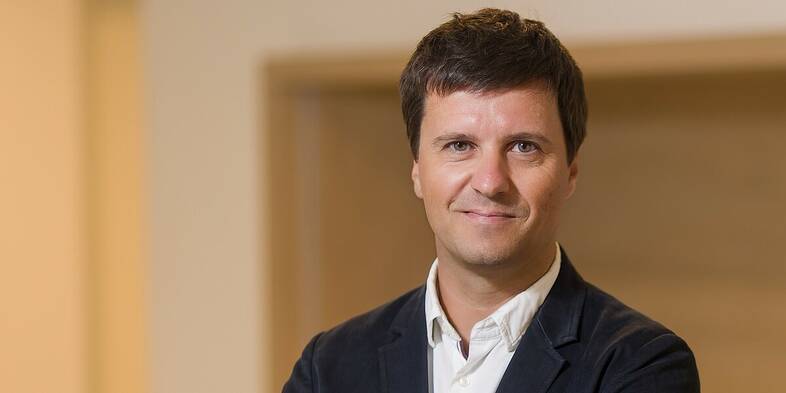Computational neurology: Christian Meisel awarded funding for Schilling Foundation professorship

Computational neurology is a young research discipline. It aims to expand our understanding of neurological system functions and to improve the diagnosis, therapy, and prevention of neurological diseases. Scientists use AI methods to help them quickly evaluate large and complex volumes of data (so-called big data). “We work with multimodal time-series data from across the health–disease continuum. For that, we use wearable measuring devices and neuromonitoring,“ says Meisel. “This approach opens up entirely new dimensions of data analysis, and I’m certain that we’ll be able to put this to concrete and multifaceted use in patient care. It’s not just about accelerating our acquisition of knowledge, but also about transferring that knowledge into patient care faster.”
“Receiving the endowed chair is wonderful recognition for Christian’s work,“ says Prof. Christopher Baum, Chair of the BIH Board of Directors and Chief Translational Research Officer of Charité. “We are delighted that the BIH can now further expand this important discipline, which exists at the interface of the data and life sciences. It shows that research can directly and positively impact the lives of patients, which is in keeping with the BIH’s mission of bringing research discoveries to patients.”
Prof. Matthias Endres, Director of Charité’s Department of Neurology, adds: “The Schilling Foundation funding and Christian’s future work will directly benefit neurological patients with conditions such as stroke or epilepsy, and those in intensive care.”
All about rapid translation
Meisel previously worked at institutions including Harvard Medical School in Boston, USA, and the National Institutes of Health in Bethesda, USA. In September 2020, he joined the BIH and Charité as both a researcher and a senior physician.
The connection between the funded basic research and clinical care structures was a key aspect in awarding the chair. Since its inception, the Schilling Foundation has promoted rapid translation from bench to bedside and uses a tandem model when awarding funding. This means it explicitly requires close links between preclinical and clinical research. “Translating our work into clinical care is a core priority for us,” says Meisel. “The close relationship between the BIH and Charité gives us the ideal conditions in which to do that.”
Research to focus on monitoring, real-world data, and AI
“Our aim is to create permanent structures that will establish computational neurology as a new discipline in research, teaching, and clinical medicine,” says Meisel. In the coming years, he plans to use the foundation’s funding to concentrate on three areas of research. The first area is data analysis. It will involve analyzing large volumes of data from routine clinical practice, such as those derived from inpatient monitoring on intensive care and stroke wards. The results can then be used to develop computer-aided methods for real-time monitoring and for predicting the worsening of a condition and the need for intervention.
The second area focuses on long-term outpatient monitoring using wearables, which are sensors that patients wear to generate long-term data from their daily life. “Right now, we mainly use them for patients with epilepsy,” says Meisel. “We want to see if the wearables can objectively capture the patient’s clinical status. We’re especially interested in finding out whether the data can help us better identify and predict epileptic seizures, so preemptive action can be taken.”
The third area relates to understanding network activities in the brain. It will focus on the fundamental functioning of the brain and seek to understand its immense capabilities. The research is still in its infancy. “We hope our work will lead to a better understanding of the way both brain and AI networks operate,” says Meisel.



